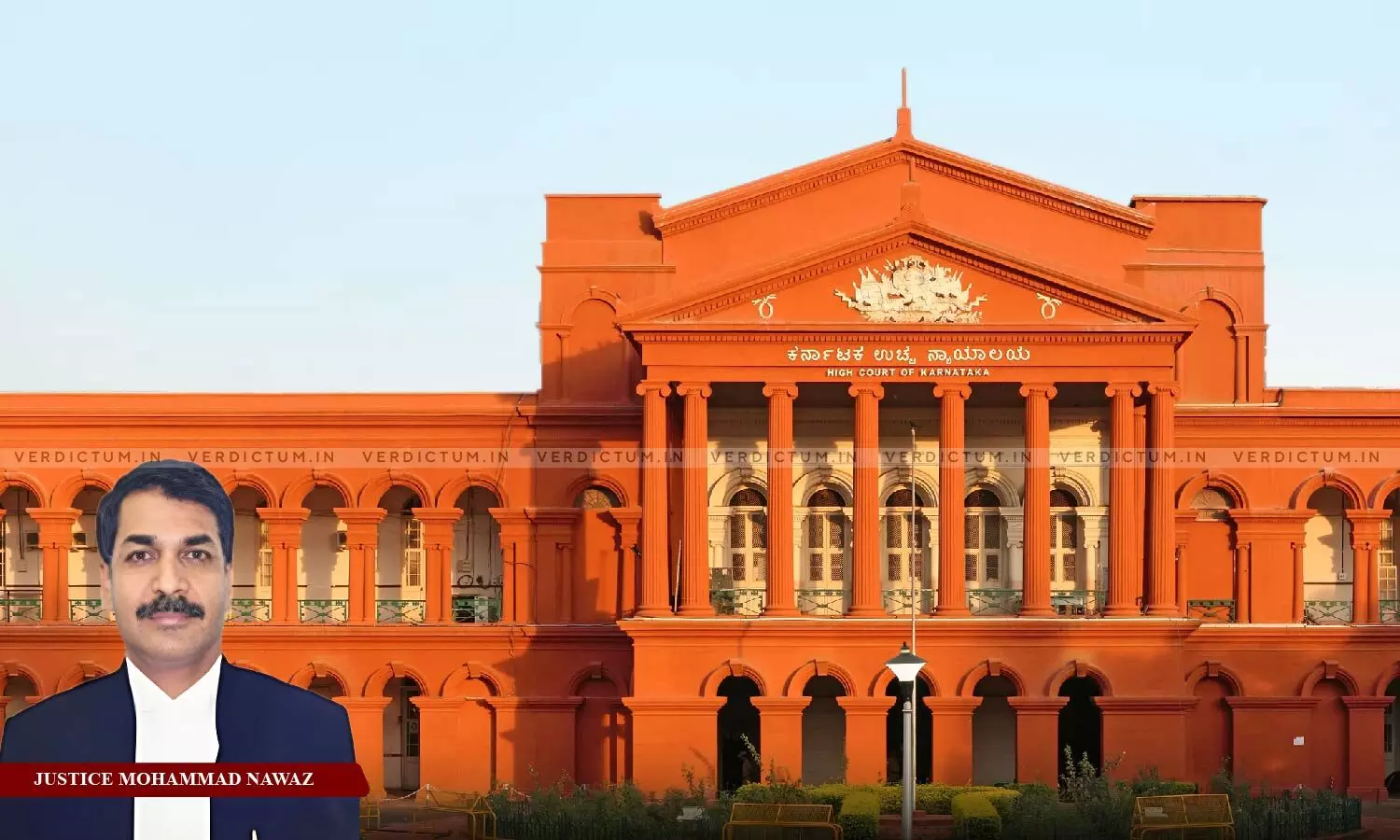
Justice Mohammad Nawaz, Karnataka High Court
Courts Must Exercise Caution When Granting Anticipatory Bail, Especially In Cyber Economic Crimes: Karnataka High Court
 |
|The Karnataka High Court denied anticipatory bail to the former employees of NewSpace Research and Technologies Pvt. Ltd.
The Karnataka High Court held that Courts must exercise caution when granting anticipatory bail, especially in cyber economic crimes.
The Court denied anticipatory bail to the former employees (Petitioners) of NewSpace Research and Technologies Pvt. Ltd. (NRT), who were accused of stealing confidential defense-related data for their new employer, Lenviz Technologies Pvt. Ltd. The Petitioners were charged under Sections 66, 66(B), and 66(C) of the Information Technology Act, 2000 (IT Act) and Sections 318(2), 318(3), and 318(4) of the Bharatiya Nyaya Sanhita, 2023 (BNS).
A Single Bench of Justice Mohammad Nawaz held, “It cannot be said that there is no prima facie case against the petitioners. Granting pre-arrest bail can significantly hamper the investigation, particularly in collecting useful information and uncovering concealed materials. Courts must exercise caution when granting anticipatory bail, specially in cyber economic crimes. Custodial interrogation is necessary, due to the technical nature of the crime and to reveal full extent of data theft and its concealment methods.”
Advocate Sundara Raman M.V. appeared for the Petitioners, while Additional SPP Asma Kouser represented the Respondent.
Brief Facts
The CEO of NRT alleged that the Petitioners, along with other former employees, accessed, copied, and transmitted highly sensitive aerospace and defense research data to their new employer. The stolen data allegedly included source codes, CAD designs, flight controller parameters, and other proprietary software, which were later used by Lenviz to place a competing bid for the Meher Baba Swarm Drone Competition-II.
Following an IT audit of the accused employees' laptops, investigators discovered a separate Autodesk Fusion 360 workspace labeled “Lenviz Tech”, allegedly used for transferring stolen data.
Court’s Reasoning
The High Court pointed out the well-settled position of law that while considering a bail application, Courts should refrain from evaluating or undertaking detailed assessment of evidence, as the same is not a relevant consideration at the threshold stage. “The Court may examine prima facie issues, including any reasonable grounds whether the accused committed an offence,” it explained.
“The allegations are that accused Nos.1 to 3, former employees of complainant’s company conspired to steal sensitive information for the benefit of their current employer ‘Lenviz’. The accused are alleged to have retained the confidential information obtained during their employment at the complainant’s company,” the Bench noted.
Consequently, the Court held, “The petitioners actions show their ability and willingness to destroy and tamper with evidence. Preliminary findings would establish that the petitioners continued to access, retain and use proprietary information even after their resignation and demonstrates a deliberate attempt to misappropriate data for unlawful benefits, constituting a prima facie case. Granting anticipatory bail could jeopardize investigation and may frustrate the investigating agency in interrogating the accused and collecting useful information and may weaken the ability of law enforcement agencies to combat sophisticated cyber crimes.”
Accordingly, the High Court dismissed the Petitions.
Cause Title: Prabhat Sharma v. State of Karnataka (Neutral Citation: 2025:KHC:11059)
Appearance:
Petitioners: Advocate Sundara Raman M.V.
Respondent: Additional SPP Asma Kouser; Advocates Angad Kamath, Sloka B. and Suyog Sathya